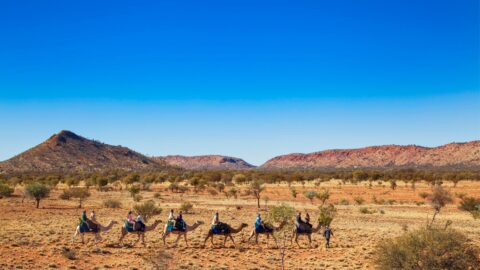The Borough Department Store, Ultimate Winery Experiences of Australia
What does sustainability mean?
Sustainability is a broad concept that revolves around meeting the needs of the present without compromising the ability of future generations to meet their own needs. It encompasses responsible practices that address environmental, social, and economic concerns.
In essence, sustainability aims to maintain a delicate balance between human activities and the natural world, ensuring the long-term health and well-being of both. This involves careful resource management, minimising environmental impact, promoting social equity, and fostering economic resilience. Whether applied to businesses, communities, or global initiatives, sustainability is about creating a harmonious and enduring coexistence between people and the planet, recognising the interconnectedness of environmental, social, and economic systems.
The 4 Pillars of Sustainability
Sustainable Tourism Certification is a business development tool that enables you to improve the sustainability of your business across every aspect of the triple bottom line, using global best practice criteria. It assures travellers that products are backed by a strong, well-managed commitment to sustainable practices and provide high quality tourism experiences.
1.
Sustainable Management
Sustainable management requires a holistic and realistic vision for long-term sustainability and includes the maintenance of environmental, social, cultural, economic, accessibility, risk, and crisis management practices. As with all pillars of sustainability, sustainable management involves striving for continuous improvement.
2.
Socio-economic Impacts
Socio-economic sustainability ensures local communities receive maximum economic and social benefits from tourism activity. The tourism industry should facilitate decent and ongoing economic and entrepreneurial opportunities for communities and provide equal opportunity without discrimination for sustainable livelihoods.
3.
Cultural Impacts
Cultural sustainability involves recognition of which Country you are on, the authentic representation of Indigenous cultures in tourism activities, and collaboration with those people, organisations, and stakeholders.
For many industries, social and cultural factors are considered one pillar, however differentiating the two in the tourism industry leads to strong and focused planning dedicated to each pillar.
4.
Environmental Impacts
Environmental sustainability requires that the needs of the current population are met without depleting resources for generations to come.
Ensuring environmental sustainability includes implementing environmental risk management practices, measuring emissions, and working to reduce them, sustainable sourcing, waste management and minimisation, energy efficiency, and nurturing any factors that surrounding natural environments depend on.
Measuring environmental impact is vital to ensuring operations are making a real difference. As Peter F. Drucker stated, “If you can’t measure it, you can’t manage it.”
What is sustainable tourism?
Sustainable tourism goes beyond just enjoying travel; it involves actively protecting and restoring our natural environment while preserving Australia’s unique wonders and cultures for current and future generations to enjoy.
This approach seeks to create a tourism industry that not only brings economic benefits to communities but also contributes to the well-being of Australia. By fostering a profitable industry within your region, sustainable tourism generates employment opportunities, enhances the tourism experience for travellers, and improves the overall quality of life for the people living in your region. It’s about finding a balance where tourism thrives, the environment is cared for, and local communities benefit in the long run, creating a win-win situation for everyone involved.
What is ecotourism and how does it relate to sustainable tourism?
“All ecotourism is sustainable tourism, but not all sustainable tourism is ecotourism.”
Ecotourism Australia defines ecotourism as:
“Ecologically sustainable tourism with a primary focus on experiencing natural areas that fosters environmental and cultural understanding, appreciation and conservation”.
It aims to preserve the integrity of the destination and its focus is on conserving the local environment and historical heritage while supporting the culture and encouraging people to look after the natural resources that attract them to the region.
How can I travel responsibly?
Part of living a sustainable lifestyle is ensuring you book with businesses and destinations that make it easier to reduce your environmental footprint on holiday.
1.
Book with businesses and destinations that hold globally recognised sustainability certification.
2.
Look for indicators like the Travel Sustainable badge on Booking.com listings or the Eco-certified badge on Google.
3.
Use our all-in-one platform for booking certified tourism operators, the Green Travel Guide.

Your answer to travelling sustainably. Find certified ecotourism and sustainable experiences across Australia, all in one place.
Discover more

Our certification programs
Getting started on your sustainability journey is an important step towards fostering responsible tourism practices.

Pathway Program
The Strive 4 Sustainability Scorecard is a pathway program for any tourism business to start them on their sustainability journey.